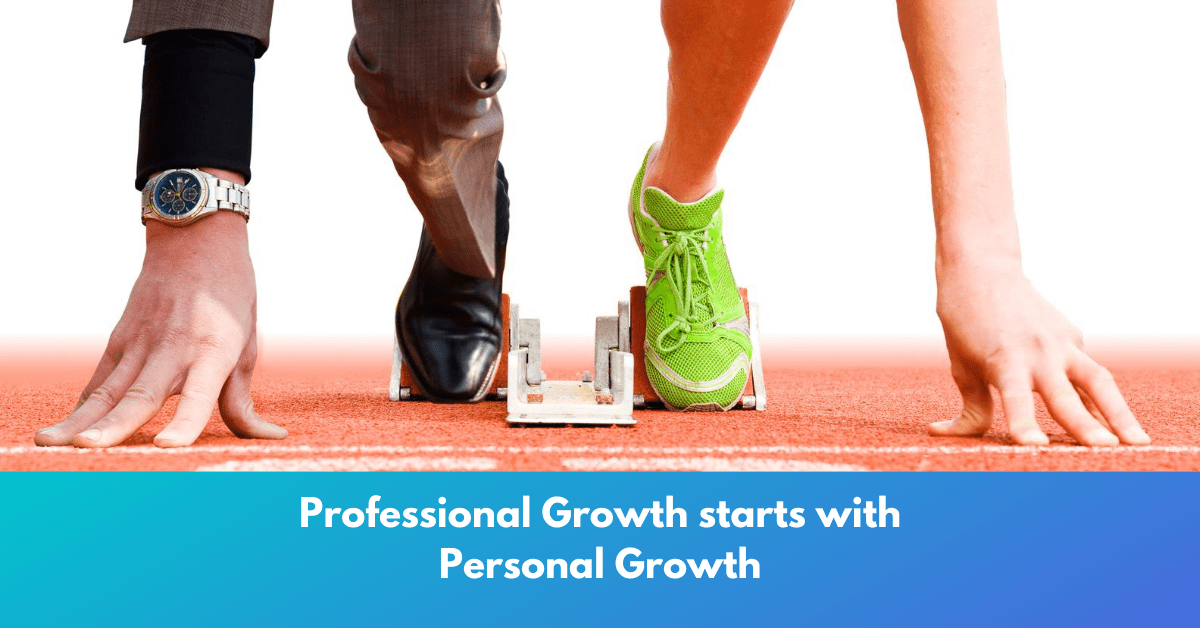Understanding the Power of Mindset

Table of Contents
Mindset refers to the established attitudes and beliefs that shape an individual’s thoughts and behaviors. It plays a crucial role in determining how we perceive and approach challenges in life. One powerful mindset is the growth mindset, which involves the belief that abilities and intelligence can be developed through dedication and hard work. Embracing a growth mindset enables individuals to overcome obstacles, embrace learning opportunities, and reach their full potential.
Studies have shown that mindset can impact motivation, resilience, and overall well-being. When we have a positive and growth-oriented mindset, we are more likely to persevere through challenges and view failures as learning opportunities. This mindset fosters creativity, innovation, and a willingness to take risks. It is important to understand the power of mindset and how it can shape our lives.
Techniques for Unlocking and Expanding Your Mindset

There are several techniques that can help unlock and expand your mindset. Meditation is a powerful tool that allows you to access the subconscious mind, change brain patterns, and enhance problem-solving skills. By practicing meditation, you can tap into the deeper layers of your consciousness and gain new perspectives.
Changing beliefs and clearing emotional blocks through practices like visualization, affirmations, and gratitude exercises can also unlock the mind’s true potential. Visualization exercises help you imagine and manifest your desired outcomes, while affirmations help reframe negative thoughts and instill positive beliefs. Gratitude exercises promote a positive mindset and foster appreciation for the present moment.
Living in the present moment and reducing stress through mindfulness techniques can improve focus and overall mental well-being. By practicing mindfulness, you can become more aware of your thoughts and emotions, allowing you to better manage stress and cultivate a positive mindset. Additionally, incorporating regular exercise, good nutrition, and self-care practices can fuel the mind and optimize its performance.
The Benefits of Adopting a Growth Mindset
Adopting a growth mindset has numerous benefits. Individuals with a growth mindset are more likely to persevere through challenges, view failures as learning opportunities, and maintain a positive attitude. This resilience and optimism contribute to increased motivation, creativity, and innovation.
Research has shown that a growth mindset positively impacts academic and professional achievement. By believing in our ability to learn and grow, we are more likely to embrace learning opportunities and strive for excellence. A growth mindset fosters a love for learning, leading to continuous personal and professional development.

Mindset Exercises and Practices to Try
There are various mindset exercises and practices you can try to cultivate a growth mindset. Visualization exercises help you imagine and manifest your desired outcomes. Take a few moments each day to visualize yourself achieving your goals and experiencing success.
Affirmations are another powerful tool for reframing negative thoughts and instilling positive beliefs. Repeat positive statements about yourself and your abilities to reinforce a growth mindset. For example, say affirmations such as “I am capable of overcoming any challenge” or “I embrace learning and growth.”
Gratitude exercises promote a positive mindset and foster appreciation for the present moment. Take time each day to reflect on things you are grateful for. Write them down in a gratitude journal or simply express them in your thoughts. This practice can shift your focus towards the positive aspects of your life and enhance your overall well-being.
Journaling and self-reflection are also effective practices for nurturing a growth mindset. Take time to reflect on your experiences, challenges, and personal growth. This self-awareness can help you identify areas for improvement and celebrate your progress.
The Neuroscience of Mindset and Consciousness
Neuroscience research explores the connection between brain activity, consciousness, and mindset. Dr. Joe Dispenza, a renowned researcher, has conducted extensive research on brain scans and the power of the mind. According to his work, consciousness is what changes the brain, not the other way around. By focusing on the present moment, we can tap into pure consciousness and go beyond the limitations of matter.
The Global Neuronal Workspace Theory suggests that consciousness arises when information is available to multiple cognitive systems in the brain. This theory highlights the importance of integrating information from different parts of the brain for conscious awareness.
The Integrated Information Theory proposes that consciousness is a fundamental aspect of the universe. It suggests that consciousness emerges when information is integrated in a highly complex and interconnected manner.
While the neuroscience of consciousness is still an evolving field, it has implications for mental health, artificial intelligence, and ethical considerations. Understanding the relationship between mindset, consciousness, and the brain can provide insights into personal transformation and the unlocking of the mind’s true potential.
The Role of Mindset in Personal Transformation
Mindset plays a crucial role in personal transformation. By shaping our beliefs, attitudes, and behaviors, mindset sets the foundation for change. Stories of individuals like Dr. Joe Dispenza, who healed himself through mindset practices, exemplify the transformative power of mindset. By adopting a growth mindset and believing in our own potential, we can initiate and sustain positive changes in various aspects of our lives.
Cultivating self-belief and empowerment is essential for personal transformation. When we believe in ourselves and our ability to change, we open ourselves up to new possibilities and take inspired action. A mindset shift can lead to positive changes in relationships, career, and overall well-being.
Cultivating a Positive Mindset for Success
A positive mindset contributes to success by fostering optimism, resilience, and a growth-oriented outlook. When we approach challenges with a positive mindset, we are more likely to overcome obstacles and maintain motivation. Positive thinking and self-talk can help reframe negative thoughts and maintain a constructive mindset.
Optimism and positivity have been linked to improved physical and mental health outcomes. By cultivating a positive mindset, we can enhance our overall well-being and experience greater satisfaction in life. Practicing gratitude, reframing negative thoughts, and surrounding ourselves with positive influences can contribute to a positive mindset.

Overcoming Common Mindset Barriers
Limiting beliefs and self-doubt are common mindset barriers that can hinder personal growth. Overcoming these barriers requires self-awareness, challenging negative thoughts, and cultivating self-compassion. Recognize the negative beliefs that hold you back and replace them with positive and empowering thoughts.
Techniques such as cognitive reframing, affirmations, and seeking support from others can help overcome mindset barriers. By challenging negative thoughts and beliefs, you can create a mindset that supports your goals and aspirations. Remember to be patient and compassionate with yourself during this process.
Recognizing and addressing mindset barriers is crucial for unlocking your full potential and embracing personal growth.
Nurturing a Growth Mindset in Children and Education
Nurturing a growth mindset in children enhances their learning abilities, resilience, and academic achievement. Parents and educators play a significant role in fostering a growth mindset in children. Providing constructive feedback, encouraging effort over outcomes, and promoting a love for learning can contribute to a growth mindset.
Mindset-focused interventions, such as teaching children about neuroplasticity, can help them develop a growth mindset. By understanding that the brain can change and grow with effort, children are more likely to embrace challenges and persevere through difficulties.
Cultivating a growth mindset in the education system can positively impact future generations and create a culture of continuous learning. By prioritizing effort, growth, and resilience, we can equip children with the mindset and skills necessary for success in an ever-changing world.
Embracing a Growth Mindset in the Workplace
A growth mindset in the workplace promotes adaptability, innovation, and continuous improvement. Organizations can cultivate a growth mindset culture by fostering a learning environment, providing growth opportunities, and encouraging risk-taking. Continuous learning, feedback, and embracing challenges are essential for individuals to develop a growth mindset at work.
Embracing a growth mindset in the workplace enhances employee engagement, collaboration, and overall organizational success. When employees believe in their own growth potential and embrace learning opportunities, they contribute to a culture of innovation and excellence.
By adopting a growth mindset, individuals and organizations can unlock their full potential and thrive in a rapidly changing world.
Personal Growth: Unleashing Your Full Potential

Personal growth is the process of self-improvement and self-development.
Personal growth is a lifelong journey of self-improvement and self-development. It involves taking deliberate steps to enhance various aspects of your life, including your skills, knowledge, mindset, and overall well-being. By actively engaging in personal growth, you can unlock your full potential, achieve your goals, and lead a more fulfilling and meaningful life.
Why personal growth is important
 Personal growth is essential for several reasons. It allows you to: 1. Improve yourself: Personal growth helps you become the best version of yourself. It enables you to identify your strengths and weaknesses and work on them to enhance your skills and abilities. 2. Achieve goals: By continuously growing and developing, you can set and achieve meaningful goals. Personal growth provides you with the tools and mindset necessary to overcome obstacles and reach your full potential. 3. Increase self-awareness: Engaging in personal growth activities promotes self-reflection and self-awareness. It allows you to understand your values, beliefs, and motivations, leading to better decision-making and a deeper understanding of yourself. 4. Enhance relationships: Personal growth positively impacts your relationships with others. As you grow and develop, you become more empathetic, understanding, and compassionate, fostering healthier and more fulfilling connections with those around you.
Personal growth is essential for several reasons. It allows you to: 1. Improve yourself: Personal growth helps you become the best version of yourself. It enables you to identify your strengths and weaknesses and work on them to enhance your skills and abilities. 2. Achieve goals: By continuously growing and developing, you can set and achieve meaningful goals. Personal growth provides you with the tools and mindset necessary to overcome obstacles and reach your full potential. 3. Increase self-awareness: Engaging in personal growth activities promotes self-reflection and self-awareness. It allows you to understand your values, beliefs, and motivations, leading to better decision-making and a deeper understanding of yourself. 4. Enhance relationships: Personal growth positively impacts your relationships with others. As you grow and develop, you become more empathetic, understanding, and compassionate, fostering healthier and more fulfilling connections with those around you.
Identifying areas for personal growth
 To embark on a personal growth journey, it is crucial to identify the areas in which you want to grow. Here are two key steps to help you get started:
To embark on a personal growth journey, it is crucial to identify the areas in which you want to grow. Here are two key steps to help you get started:
Self-reflection and self-awareness
Take time to reflect on your strengths, weaknesses, and areas of interest. Consider what aspects of your life you would like to improve and what skills you would like to develop. Self-awareness is the foundation for personal growth, as it allows you to identify the areas that require attention and focus.
Setting goals
Once you have identified the areas for personal growth, set specific and measurable goals. These goals will serve as a roadmap for your journey. Break them down into smaller, achievable steps to make progress more manageable and trackable.
Developing a growth mindset
 A growth mindset is a crucial mindset to adopt for personal growth. It is the belief that your abilities and intelligence can be developed through dedication and hard work. Here are three practices to cultivate a growth mindset:
A growth mindset is a crucial mindset to adopt for personal growth. It is the belief that your abilities and intelligence can be developed through dedication and hard work. Here are three practices to cultivate a growth mindset:
Embracing challenges
View challenges as opportunities for growth rather than obstacles. Embrace them with a positive attitude and see them as chances to learn, develop new skills, and expand your capabilities.
Learning from failures
Failure is a natural part of personal growth. Instead of being discouraged by failures, see them as valuable learning experiences. Analyze what went wrong, extract lessons from the experience, and use them to improve and grow.
Seeking feedback
Feedback is a powerful tool for personal growth. Actively seek feedback from trusted individuals who can provide constructive criticism and guidance. Use their insights to identify areas for improvement and make necessary adjustments.
Practices for personal growth
Continuous learning
Commit to lifelong learning by reading books, attending seminars, taking courses, or engaging in online learning platforms. Continuously expanding your knowledge and skills will contribute to your personal growth.
Building healthy habits
Developing healthy habits, such as regular exercise, proper nutrition, and sufficient sleep, is essential for personal growth. These habits contribute to your overall well-being and provide a solid foundation for personal development.
Stepping out of your comfort zone
Growth occurs outside of your comfort zone. Challenge yourself by taking on new experiences, trying new activities, and pushing yourself beyond your perceived limits. Stepping out of your comfort zone fosters personal growth and builds resilience.
Overcoming obstacles in personal growth
 Personal growth is not without its challenges. Here are three common obstacles and strategies to overcome them:
Personal growth is not without its challenges. Here are three common obstacles and strategies to overcome them:
Procrastination and lack of motivation
Combat procrastination and lack of motivation by breaking tasks into smaller, manageable steps. Set deadlines and create a supportive environment that encourages productivity. Find ways to stay motivated, such as rewarding yourself for completing tasks or seeking an accountability partner.
Fear of failure
Fear of failure can hinder personal growth. Embrace a growth mindset and reframe failure as an opportunity for learning and growth. Remind yourself that failure is a natural part of the journey and that each setback brings you closer to success.
Self-doubt and negative self-talk
Challenge self-doubt and negative self-talk by practicing self-compassion and positive affirmations. Surround yourself with supportive and encouraging individuals who believe in your potential. Focus on your strengths and past successes to build confidence.
Seeking support for personal growth
Seeking support from others can greatly enhance your personal growth journey. Consider the following avenues for support:
Mentors and role models
Find mentors or role models who have achieved personal growth in areas you aspire to develop. Their guidance, advice, and experiences can provide valuable insights and inspiration.
Joining communities and support groups
Connect with like-minded individuals by joining communities or support groups focused on personal growth. These communities provide a supportive environment where you can share experiences, learn from others, and receive encouragement.
Measuring personal growth
 Measuring your personal growth allows you to track progress and celebrate milestones. Consider the following practices:
Measuring your personal growth allows you to track progress and celebrate milestones. Consider the following practices:
Tracking progress
Regularly assess your progress towards your personal growth goals. Keep a journal, create a checklist, or use a tracking app to monitor your achievements and identify areas that require further attention.
Celebrating milestones
Celebrate your milestones and achievements along the way. Acknowledge your progress and reward yourself for your hard work and dedication. Celebrating milestones boosts motivation and reinforces the importance of personal growth.
Conclusion
 Personal growth is a transformative journey that empowers you to become the best version of yourself. By embracing personal growth, setting goals, developing a growth mindset, and seeking support, you can overcome obstacles, continuously learn, and measure your progress. Start your personal growth journey today and unlock your full potential for a more fulfilling and meaningful life.
Personal growth is a transformative journey that empowers you to become the best version of yourself. By embracing personal growth, setting goals, developing a growth mindset, and seeking support, you can overcome obstacles, continuously learn, and measure your progress. Start your personal growth journey today and unlock your full potential for a more fulfilling and meaningful life.
FAQs
- What does personal growth mean?Personal growth is the process of an individual becoming aware of the ‘self’ in its entirety, followed by taking steps to address the behaviour, attitudes, values, actions and habits that they wish to change.
- What are 3 signs of personal growth?These are the signs which are the most prominent for me when a person starts to grow: 1. You don’t sweat the small stuff any longer. 2. Gratitude is a way of life. 3. Awareness of your own patterns. 4. You feel a deep need to make a positive impact in this world.
- What is personal growth with example?Personal growth is the process in which an individual recognizes and maximizes their own potential. For instance, a person may seek to improve their communication skills (a facet of personal growth) by participating in public speaking workshops over a period of time.
- What is personal growth about myself?Self-growth, also known as ‘personal growth,’ is a process of developing new skills, behaviors, actions, attitudes, habits and reactions to benefit certain aspects of your life. Self-growth might be something you want to work on concerning your career, personal life or both.
